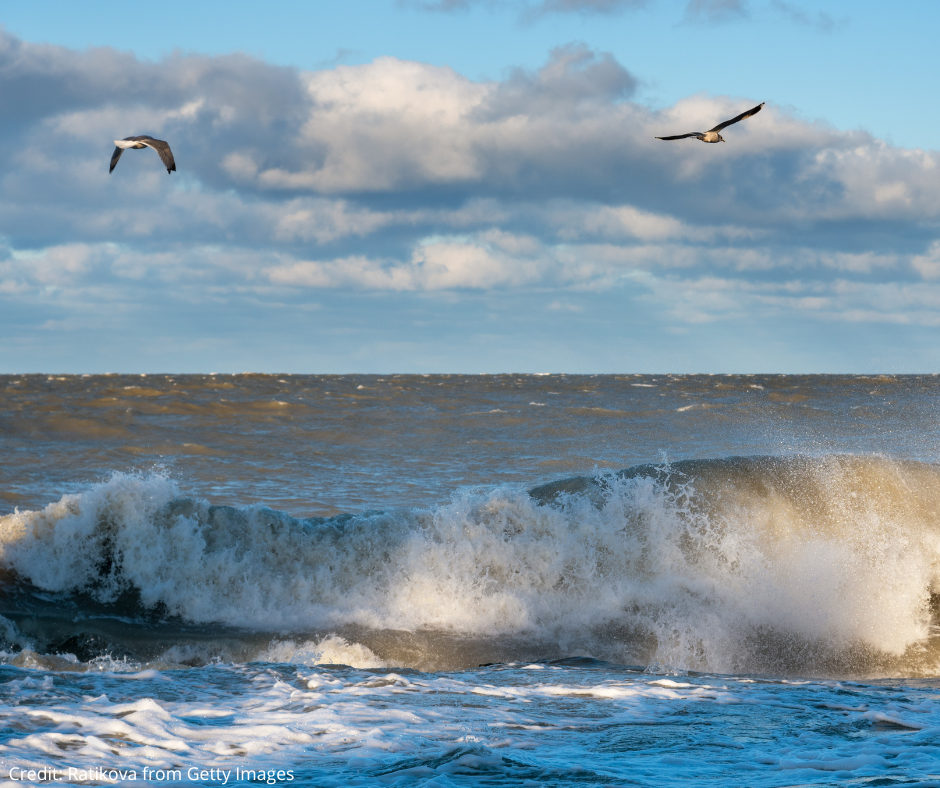Some good news for overfished stocks in the Baltic Sea but could be too little too late
Baltic Sea EU member states choose to set some quotas at precautionary levels to safeguard depleted fish populations but fail to proactively protect declining herring and cod stocks in the Baltic ecosystem.

Press release from: The Fisheries Secretariat, Seas at Risk, Our Fish, Oceana, Coalition Clean Baltic, WWF Baltic Ecoregion Programme and the Danish Society for Nature Conservation.
Luxembourg, 17 October 2022: Today, after an unprecedentedly short Fisheries Council meeting in Luxembourg, EU fisheries ministers have reached an agreement on the Baltic Sea fishing opportunities for 2023. With many populations on a downward trend and an ever increasing risk of ecosystem collapse, these negotiations presented a missed opportunity to set the Baltic Sea on a path to recovery and a sustainable fishery in the long term.
”This is the third year the Commission really made an effort to take wider ecosystem considerations and set more cautious catch levels, and once again the Ministers counteract those ambitions. We are still far away from a management that understands that the ecosystem needs cannot be negotiated”, says Nils Höglund from Coalition Clean Baltic.
“While, it is encouraging that the European Commission and Member States have been more transparent about their positions on fishing limits ahead of the Council meeting, as they have been evasive and opaque in the past, they now need to extend this transparency to an honest and public discussion about the importance of fish as carbon engineers of the ocean,” says Rebecca Hubbard from Our Fish. “There is an urgent need to restore fish populations so that they can continue to help sequester carbon and be more resilient to the worsening impacts of climate change.”
In the run up to the Council meeting, the European Commission proposed setting catch limits for some species lower than the scientifically calculated maximum. This was done in the spirit of an ecosystem-based approach to fisheries management with the aim of protecting the severely depleted cod stocks in the Baltic. While the Member States chose to follow the progressive Commission's proposal for plaice, a fishery with substantial cod bycatch, they opted to set quotas for sprat and Central Baltic herring higher than the Commission proposed.
“Sprat and herring are an essential food source for Eastern Baltic cod and we know cod struggle to find food now. It was great to see the Commission acknowledge this in the proposal” says Jan Isakson of the Fisheries Secretariat “It is very disappointing that Member States again choose short-term gains instead of helping the recovery of cod in the Baltic.”
Fisheries Ministers upheld the Commission’s proposal to not permit targeted fishing of eastern and western Baltic cod as well as western Baltic herring and only allow some bycatch to be landed. NGOs had recommended that in accordance with scientific advice zero catches should be allowed, not even as ‘unintentional’ bycatch in other fisheries.
“Although we understand a 100% bycatch-free fishery does not exist, we had hoped that decision makers would make any bycatch allowance conditional on the implementation of adequate catch recording using Remote Electronic Monitoring techniques” says Cathrine Pedersen Schirmer from the Danish Society for Nature Conservation DN. ”Denmark has recently implemented this method successfully in the Kattegat.”
“There is a great deal of evidence that the ecological state of the Baltic Sea is dire, but we should not forget that it is overfishing that is the main reason for the collapse of cod and western Baltic herring,” says fisheries campaign director at Oceana in Europe, Javier López. “To help recover Baltic Fish stocks and marine ecosystems, decision makers should need to do more to factor in interspecies relations and stressors like eutrophication and warming water when setting catch limits. ”
“Time is running out for the Baltic Sea. While Ministers today took good steps in the right direction by considering ecosystem interactions for most stocks, these steps are too small and don’t match the crisis state we are in”, said Christine Adams from Seas At Risk. “We need to rethink how we fish and how we can manage Baltic fisheries in an environmentally friendly and socially just way.”
On salmon catches the Council also accepted the Commission’s proposal as well as additional management considerations to safeguard weak salmon stocks. This result is perhaps the most encouraging of this Council’s meeting since it is in line with scientific advice and includes a shift in management that is needed, taking account of spatial and temporal measures strongly suggested by experts for more than 15 years.
“It is encouraging that every year we see a little more progress towards sustainability and taking some ecosystem elements into account when setting fishing quotas,” Says Johanna Fox, WWF Baltic Ecoregion Programme Director. “But we need to accelerate the pace if the Baltic ecosystem is to recover. More protective measures are called for, including Remote Electronic Monitoring to secure effective fisheries control, the mandatory use of selective gears and better implementation of the Landing Obligation, as well as to allocate fishing quotas to fisheries with the least environmental impact.“
ENDS
Notes:
- Joint NGO recommendations on Baltic Sea fishing opportunities for 2023 (June 2022)
- Baltic Sea: Council agrees catch limits for 2023 (17 October 2022)
Contacts:
- Jan Isakson, Director, FishSec, +46 70 608 74 83, jan.isakson@fishsec.org
- Dave Walsh, Our Fish Communications Advisor, +34 691 826 764 press@fish.eu
- Sara Tironi, Seas At Risk Communication officer +32 483 457 483 stironi@seas-at-risk.org
- Emily Fairless, Oceana Communication officer,+32 478 038 490, efairless@oceana.org
- Nils Höglund, Coalition Clean Baltic +46 707 679 249, nils@ccb.se
- Hannah Griffiths Berggren, Communications officer, WWF Baltic Ecoregion Programme, hannah.griffiths.berggren@wwf.se, +46851511483
- Cathrine Pedersen Schirmer, Chief adviser, Danmarks Naturfredningsforening/ Danish Society for Natur Conservation, Cathrine@dn.dk, +4531193226

